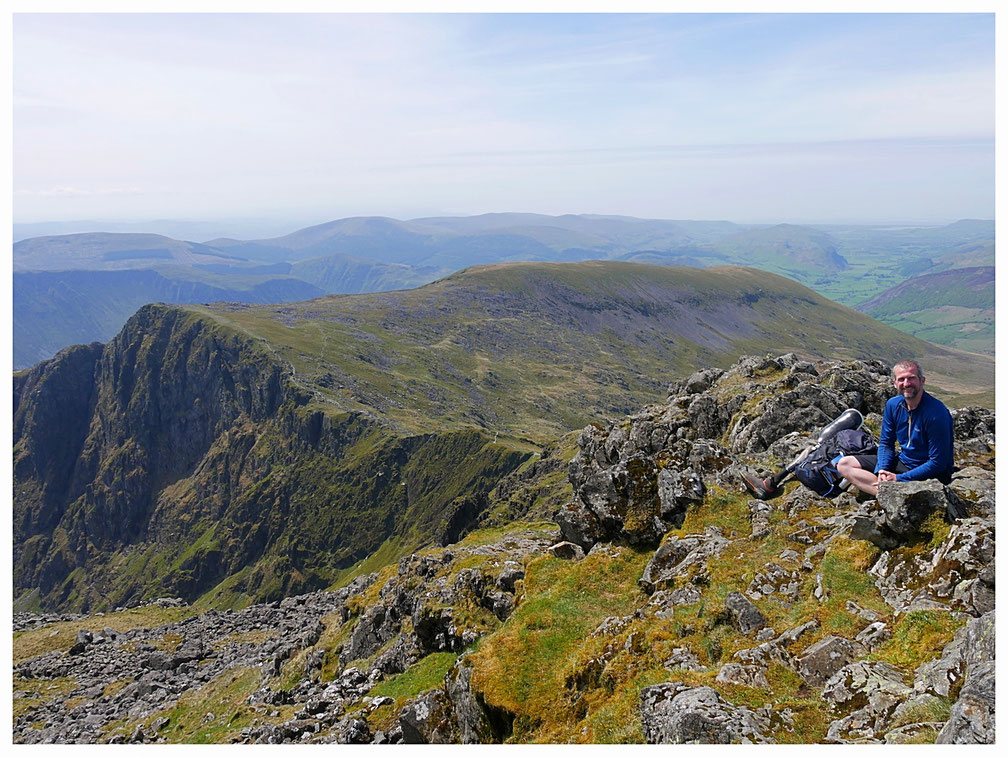
Developing Skills And Increasing Confidence
I love being outdoors. Always have. And this love for being physically active in the great outdoors did not change when I became an amputee. I regularly go hiking in the hills (and less regularly in the mountains). I know that being out in the hills far away from any assistance if the need arises can be a scary thought. At the same time and if done right it can be an immensely rewarding experience that helps to develop new skills and increase confidence to be an active and mobile above knee amputee.
While there is an ever increasing amount of outdoor gear on the market - some of it useful, some of it less so - there is actually very little to get started. For men as an above knee amputee three pieces off kid are essential for almost any hind of hike.
Boots
First and foremost you need a pair of sturdy and well fitting hiking boots. Opinions on what kind of boots you should get are pretty varied. Leather or synthetic materials. As light as possible versus sturdy ones that weight more. Low cut versions versus ones that fully support your ankle. Etc. My personal preference is a strong boot that gives as much support as possible to my remaining ankle. A boot with a strong sole with an aggressive profile for uneven and slippery terrain. I am not too bothered if it is a Goretex boot or not. I sweat so much that the shoe will be wet anyway. The boot I currently use - and really like - is the Scarpa Zodiak Plus GTX. I love the snug fit as it allows me a very precise foot placement. The Zodiak offers a good compromise between being comfortable to wear and rather light yet giving me all the support I need. They come with a Vibram sole that provides excellent traction, working well in most environments I am active in.
Poles
Second - and in my eyes non-negotiable - on your list should be a pair of high quality trekking poles. And please get some good ones and skip the temptation to buy them from Aldi and co. You might be fully dependent on them in some situation. So getting a decent pair of trekking poles is money well invested. I use my Black Diamond Trail Pro poles each and every time I am walking on anything other than sealed roads and paths. Especially if I carry a backpack - or when my little one was still small, the baby carrier. They help me with my balance, they allow me to get up steep hills, descent steep slopes, cross streams or hop from bolder to boulder. Especially when I am walking on scree, they are indispensable. As I said I use a pair from Black Diamond. Their lock system is great and was the reason why - after more than a decade - I switched over from Leki. The flick lock is 100% secure, even when you put your full weight on the poles. And it is much easier to handle with wet and cold fingers than the one of my older Leki poles.
Backpack
Last but not least you will need a backpack. One that fits well and does not rub. One aspect above knew amputees need to pay attention to is the hipbelt. Normally a hipbelt would sit more or less where the upper rim of most sockets are. And that can be a problem. It took me a long time to find a pack that fits well, is the size I want and does not push me out of my socket if I fully load the pack, close the hipbelt and walk uphill. Most brands offer backpacks with a variety of adjustable back lengths. So make sure you use an outdoor shop that understands your special needs, lets you try out a couple of loaded packs and gives you honest advice and the options you have. For some years I have been using the Osprey Mutant 38 and I love it. It takes all my gear, is very comfortable to wear, rather lightweight and allows me to clip on climbing and other gear.
Good, so much for now. If you love being out in nature but so far have shied away from hillwalking and mountain hiking, give it a try. Block a weekend, grab a friend, get some trekking poles and just give it a go. Maybe start in areas with easy access, with shorter routes and well maintained tracks. Maybe start in an area where you have telephone signal. And then see what works best for you. Find your own style, develop your skills and build confidence. And let me know how it goes.
I will soon add another article looking more at skills development and various techniques that amputees can use when being active in rougher terrain.

